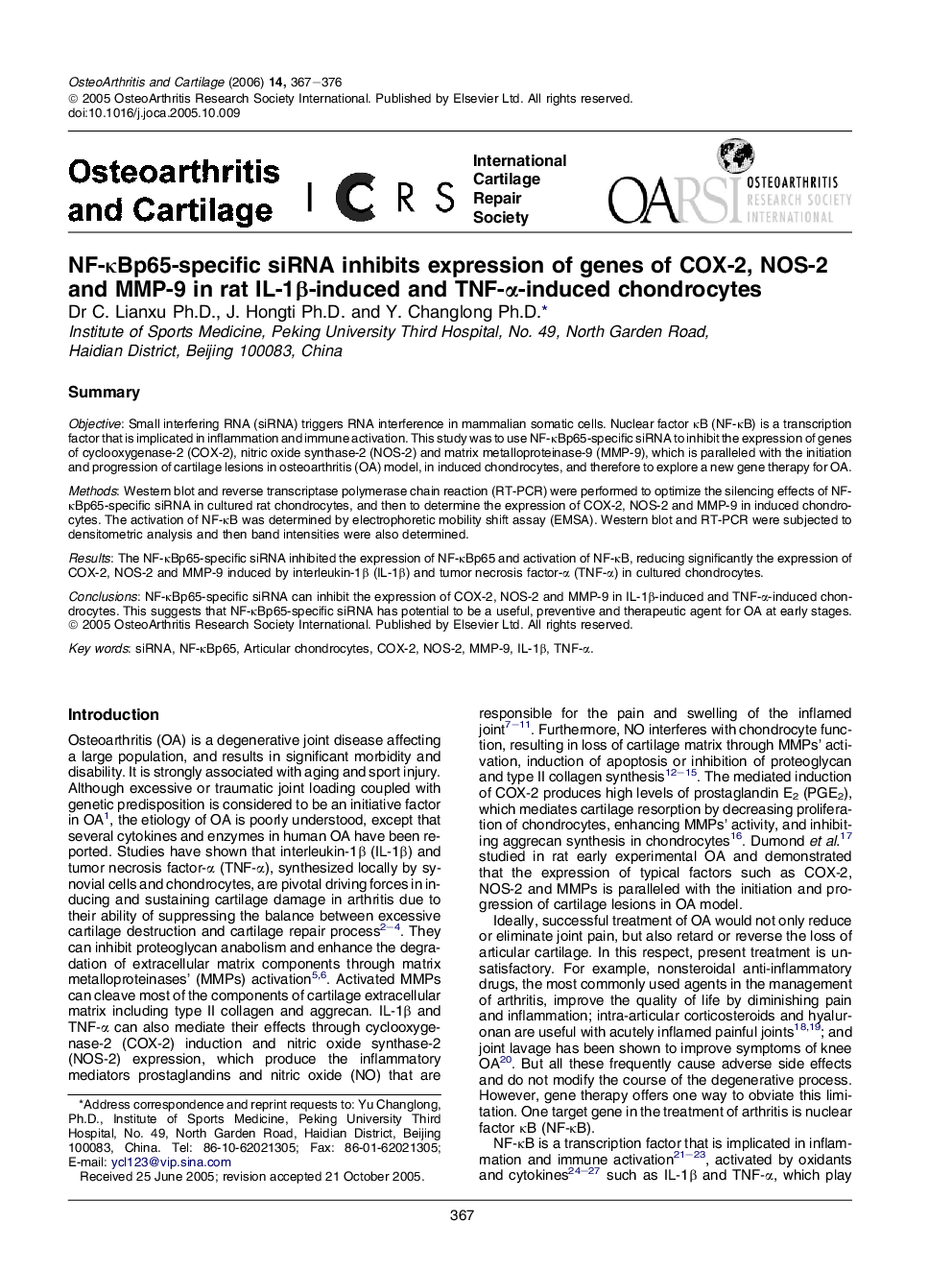| Article ID | Journal | Published Year | Pages | File Type |
|---|---|---|---|---|
| 3382006 | Osteoarthritis and Cartilage | 2006 | 10 Pages |
SummaryObjectiveSmall interfering RNA (siRNA) triggers RNA interference in mammalian somatic cells. Nuclear factor κB (NF-κB) is a transcription factor that is implicated in inflammation and immune activation. This study was to use NF-κBp65-specific siRNA to inhibit the expression of genes of cyclooxygenase-2 (COX-2), nitric oxide synthase-2 (NOS-2) and matrix metalloproteinase-9 (MMP-9), which is paralleled with the initiation and progression of cartilage lesions in osteoarthritis (OA) model, in induced chondrocytes, and therefore to explore a new gene therapy for OA.MethodsWestern blot and reverse transcriptase polymerase chain reaction (RT-PCR) were performed to optimize the silencing effects of NF-κBp65-specific siRNA in cultured rat chondrocytes, and then to determine the expression of COX-2, NOS-2 and MMP-9 in induced chondrocytes. The activation of NF-κB was determined by electrophoretic mobility shift assay (EMSA). Western blot and RT-PCR were subjected to densitometric analysis and then band intensities were also determined.ResultsThe NF-κBp65-specific siRNA inhibited the expression of NF-κBp65 and activation of NF-κB, reducing significantly the expression of COX-2, NOS-2 and MMP-9 induced by interleukin-1β (IL-1β) and tumor necrosis factor-α (TNF-α) in cultured chondrocytes.ConclusionsNF-κBp65-specific siRNA can inhibit the expression of COX-2, NOS-2 and MMP-9 in IL-1β-induced and TNF-α-induced chondrocytes. This suggests that NF-κBp65-specific siRNA has potential to be a useful, preventive and therapeutic agent for OA at early stages.
